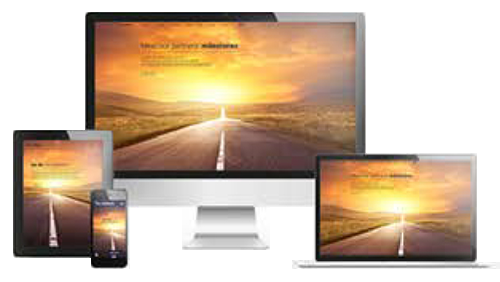It’s no secret we’ve all become mobile and embraced mobility as an integral part of our lives. We can even say “We are all mobile.” Some might complain against such statement, saying this sounds weird, but just look around you. Are we leaving faster than ever? Can we even say we are living our lives in the fast lane because everyone else around us does the same? Do we feel under pressure because of this? Are you striving to finish all tasks on time?
Are we multitasking and jumping from project to project trying to find and use all sorts of automation tools to help us do things in the fastest way possible? Have we become obsessed to stay connected and available all the time, even while on the move? Can this be considered as mobility? Or even simpler – really, really fast movement.
And, how do we do all this? Just look around you and notice how many mobile devices surrounds you. And not only you. People in your surrounding and people in general. In the streets, at work, at home, etc. Mobile devices have shrunk in sizes, but it almost seems the smaller they are, the smarter they are. They’ve even become waterproof!
Just imagine this situation: you are on vacation, enjoying in scuba diving and your smart wearable waterproof watch sends you an alert – you’ve just got an email! And while going through all those beautifully coloured fishes, you are trying to find the best hidden underwater place to check what’s new! No, we are not speaking about some spectacular scene from the latest SF blockbuster movie. We are talking about reality.

Now, let’s stop joking, although these were not jokes at all. Let’s deal with true statistics and already proven data.
Mobile has become the focal point in digital marketing and e-commerce in the last few years. We even have term m-commerce (mobile commerce) that originated in 1997 but got its true meaning recently, because the number of users who use mobile devices for different purposes raised enormously in the last few years. And some of the most important are mobile purchases, online payments, and information deliveries.
To make this even easier for understanding, we’ll use a definition from Margaret Rouse:
“M-commerce (mobile commerce) is the buying and selling of goods and services through wireless handheld devices such as cellular telephone and personal digital assistants (PDAs).”
As she also cleverly concluded, m-commerce is the next generation of e-commerce which enables users to access the internet without a need to plug in somewhere. Mobile-first philosophy is already ruling the web since websites are now designed to fit multiple screens and look good on all of them. And all this because statistics and reality have proved people are using small screens and portable devices much more than ‘old-school’ PCs.
And now, let’s take a look at some data and statistics which will support what we’ve said above.
Why is mobility a new 21st-century religion?
- In 2014, mobile internet usage overtook desktop internet
- Adults spend more time on mobile media than they do on newspapers and magazines combined
- 91% of adults have their mobile phone within arm’s reach 24/7
- 75% of mobile users use their mobile device for shopping
These data indicate consumers are now more than comfortable in using smartphones as their primary shopping devices. This also proves how much they trust these small smart devices. Why? Because they are well equipped to perform all necessary actions people need.
Even when on the move. They can browse and find whatever they need and now, a step further, with e-commerce and m-commerce ‘on-board,’ they can do easy purchases even directly in the store.
Mobile is no longer secondary, but first means of online content consumption and it has surpassed desktop devices. Data point that 91% of smartphone users have their phones within arm’s reach 24/7 as the primary source of information, confirms that businesses must make their visual identity compatible with smaller screen sizes.
If people are searching, looking, buying, interacting, etc. mostly via their mobile devices, then even the best-designed website or e-commerce done for desktop viewing only will have 0 influence on this newly emerged mobile audience. Furthermore, even 99% of consumers are using multiple screens every day.
Hence digital marketers must deliver the seamless brand experience to their customers and continuously keep up with customers’ multiscreen habits.

Now let’s define mobile marketing. One of the most commonly used definitions would be the following: “Mobile marketing is marketing on or with a mobile device, such as a smartphone.” In a more theoretical manner, academic Andreas Kaplan defines mobile marketing as “any marketing activity conducted through a ubiquitous network to which consumers are constantly connected using a personal mobile device.”
Both definitions are correct. The first one is very simple and easy for understanding, while the other one has a more serious approach.
To conclude: fast-leaving consumers want to buy from their smartphones. Tech-savvy marketers – Marketing Technologists – must develop a clear vision of how to smartly combine technology and marketing for the best end-user experience. And if all data indicate mobile is ruling our world, then CMTOs (Chief Marketing Technology Officers), sometimes even called unicorns, will have to get used to wearing that strange ‘thing’ on their heads…
Because if they don’t, someone else will…





